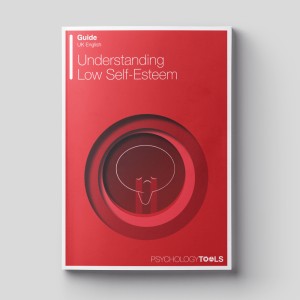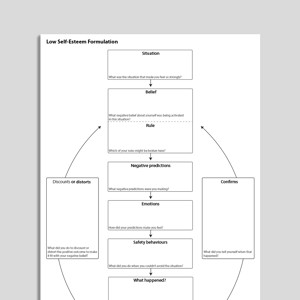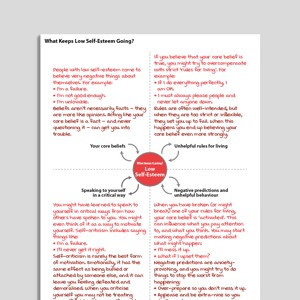Positive Qualities Record
This Positive Qualities Record is a specific type of positive data log designed for working with clients with low self-esteem. It aims to help individuals develop a more balanced view of themselves and increase their self-acceptance. This is achieved by prompting them to recognize, record, and appreciate their positive characteristics on a day-to-day basis, including personal strengths, skills, gifts, and talents. Fennell (1999, 2006, 2016) refers to similar exercises as a ‘positives portfolio’, ‘positives notebook’, or ‘good point chart’.
Download or send
Related resources
Tags
Languages this resource is available in
Problems this resource might be used to address
Techniques associated with this resource
Mechanisms associated with this resource
Introduction & Theoretical Background
Positive data logging is often used in work with core beliefs (Padesky, 1994), and is also used in CBT for difficulties where selective attention is prevalent, including low self-esteem (Fennell, 2016) depression (Beck, 2011; Moore & Garland, 2003), perfectionism (Shafran et al., 2010), eating disorders (Waller et al., 2007), personality disorders (Beck, 1996), and generalized anxiety (Hirsch et al., 2019). Depending on the client’s needs and difficulties, positive data logs can have a variety of purposes. These include:
- Recognizing positive life experiences.
- Monitoring progress, successes, and achievements.
- Identifying personal strengths, skills, and talents.
- Counter-balancing self-critical or pessimistic thinking.
- Strengthening positive beliefs about the self.
- Weakening negative beliefs about the self.
Accordingly, positive data logs have different foci and formats. For instance, they might be:
- Contemporary (e.g., the client records positive experiences in their daily life) or historical (e.g., the client identifies positive experiences from the past).
- Broad
Therapist Guidance
"It sounds as though you often struggle to recognize and accept your positive qualities. Do you think that might be contributing to the difficulties that we have been talking about? It’s actually quite common to find it difficult to acknowledge our positive qualities. One way we can address that is to start a positive qualities record. Can I show you what it involves?"
What positive qualities I should look out for?
Help the client develop an initial list of positive qualities that they can start monitoring for:
- "Let’s start by writing down some of the positive qualities you possess that would be helpful to lookout for. What do you like or value in yourself, however fleeting? What skills, talents, or gifts do you have, however modest they might seem? What do other people like about you or compliment you on? Which positive qualities do you value in others that
References And Further Reading
- Beck, J. S. (1996). Cognitive therapy of personality disorders. In P. Salkovskis (Ed.), Frontiers of cognitive therapy (pp.165-181). Guilford.
- Beck, J. S. (2011). Cognitive behavior therapy: Basics and beyond. Guilford Press.
- Beck, J. S. (2005). Cognitive therapy for challenging problems: What to do when the basics don’t work. Guilford Press.
- Fennell, M. J. (1997). Low self-esteem: A cognitive perspective. Behavioural and Cognitive Psychotherapy, 25(1), 1-26.
- Fennell, M. (2006). Overcoming low self-esteem: Self-help course (part two). Robinson.
- Fennell, M. (2016). Overcoming low self-esteem: A self-help guide using cognitive behavioural techniques (2nd ed.). Robinson.
- Greenberger, D., & Padesky, C. A. (1995). Mind over Mood: a cognitive therapy treatment manual for clients. Guilford press.
- Greenberger, D., & Padesky, C. A. (2016). Mind over mood: Change how you feel by changing the way you think. Guilford Press.
- Harvey, A., Watkins, E., Mansell, W., & Shafran, R. (2004). Cognitive behavioural processes across psychological disorders:




